On the Move, Woven in a Net
A week in the woods with Jordan Jonas. A chapter from my book.
This is a chapter from my new book, All Outcomes Are Acceptable. I’m pleasantly surprised and satisfied that the book has accrued 12 five-star reviews on Amazon thus far. This experience was in August 2023 with Jonas Expeditions.
Welcome to the desert of the real.
Morpheus
I spent six days off the phone in the Selway-Bitterroot Wilderness. It wasn't enough. I want six months. I got a taste of the primordial habitat and I want more. No phone is easy with a dozen cool people present the entire time. I met some curious cats out there in the bush. Funny how we can meet more people in the wilderness than in cities.
“It’s time, we’re going.”
“Right now?”
“Right now.”
I get out of the car and into the bush plane. The pilot shuts the door. The sun is rising over Montana.
Janahlee is standing outside the plane. “Wait do you guys want breakfast?” she says over the engine noise.
The pilot opens the door.
Janahlee hands me a bear burrito and says, “There was a situation and Jordan’s not going to be there when you land. He’ll be there at nine.”
“Okay, thank you.”
The plane taxis past a few cows and then stops.
“We’ll let the engine warm up for a minute,” says the pilot through the headset.
There are two women on the plane with me. I met them yesterday. We are flying into the wilderness to meet Jordan Jonas, Cade Cole, seven pack horses, and a few other strangers, for a wilderness expedition.
The pilot throttles us forward, off the ground, flying West, into the mountains. We pass over several ridges. There’s a dirt road with an SUV parked at the end. It’s long behind us now.
“I have a question,” I say.
“Yessir?” says the pilot.
“Where are we going to land this plane?”
“You’ll see.”
“I hope so.”
“They didn’t give us parachutes so I think we’ll be okay,” says Kathy. She hits her vape and asks, “Are we going to do a water landing?”
“No ma’am.”
Kathy is a wife, mother, and Vegas cocktail waitress of twenty years. She’s tough as nails, has unlimited energy, and brought two nicotine vapes.
We surpass more ridges. The steep terrain has huge exposed rock slabs where not even the most badass pine trees can survive.
We trim the treetops of a high ridge. The pilot cuts the engine, dips, turns, and sets us down in a field along a river. He and I get out, and he starts handing me bags. The girls are taking photos. All the bags are out. The pilot gets back in the plane and takes off.
It’s cold. The sun is behind the mountains that surround us.
“Well, this is weird.”
We build a fire which adds a little comfort.
Two hours later, Jordan and Cade arrive with the pack horses, who carry our food and gear. Two horses fell off a cliff. A mudslide washed out the trail. They went up and around but a horse got spooked and pushed two others down the mountain. They tumbled sixty feet, but survived. One of them is still alive because the saddle flipped to her stomach and stopped her from being Shish Kebab’d by a fallen tree.
The horse train crash site is littered with food and camp gear.
Jordan is sick, Cade is recovering.
“Man, I wasn’t gonna say this but I felt so sick I just grabbed a bunch of medicine and took it,” says Cade Cole. “I woke up in the night with such a bad stomach ache, man, I shit myself. I thought it was decongestant but it was laxatives.”
Cade finds a field mouse. He picks it up and shows it to the group. The mouse squirms. He releases it into the grass. It’s flails and fails to run away.
“Must’ve broken its spine,” says Cade.
He drops his boot heel on the mouse several times before one final squish.
Hell of an unintentional welcome.
The group is silent.
I start laughing. People make wide-eyed, half-laughs and look around.
My notebook is out. I wonder if people think I’m a journalist. Right now the writing is an emotional management thing. Release the tiller, I write.
The gang's all here, so we launch an eight-mile trek toward our intended campsite. In an ideal situation, I would have lightweight wool socks, summer hiking pants, taped feet and grippy hiking shoes. I have shorts, cotton socks, running shoes, and blisters forming.
It’s 102 degrees. The sun is directly overhead. Three miles in, I switch to flip-flops to cool the hotspots. I plow through the brush in shorts and flip-flops, trying to keep Jordan within eyesight.
Five miles in, the group is gathered together in a smidge of shade. Jordan breaks out lunch. It’s a classic American, school-lunch sandwich. One for each of us.
“I like that there are multiple pieces of meat,” says Maria, who grew up in Russia.
We swim through more brush.
“How much further to the campsite?” I ask a disappearing Jordan.
“Twenty feet.”
This was inaccurate.
Half a mile later, we reach the campsite—a partially shaded dirt shelf on a mountain. A creek flows nearby. A hot and steep hike on loose terrain separates our campsite from our water source.
Jordan picks up a small shovel and begins to dig for water.
Is this a joke?
He cuts off a branch from an elderberry bush and hollows it out using a rusty wire that he scavenged. He sticks the wooden pipe into the mountain and spring water shoots out. Fresh drinkable mountain water flows nonstop.
Back at my apartment, we have running water that I would never drink, and it ain’t free. All that advancement and we’ve gone backwards.
“How did you know that was the spot?” I ask Jordan.
“I saw the boulder was dry on top and damp below, so I dug it out.”
With spring water flowing in our camp, I morphed from concerned to euphoric. Many sticks served us well that week. Fires, shelters, fishing poles, cookware, weapons, and plumbing. The stick is a formidable resource.
“You could kill an elephant with a sharp stick if you hit it in the right spot,” says Cade.
I ask about the rifle laying is next to me. He custom-made it for himself.
“Have you ever shot a wolf with it?” I ask.
He tells his shooting-a-wolf story.
I’m glad men like this exist to keep it going. Soft times make weak men. Weak men make hard times. Hard times make strong men.
It’s the first night. I’m sleeping under the stars. I lay there with Dani, a London photographer who until tonight, had never seen a shooting star. Throughout the night, I feel movement on my skin. Sweat or bugs or both. I take half a milligram of xanax. That, as always, does the trick.
On this Jordan Jonas survival week, there’s no specific schedule or rules. Jordan demonstrates skills. Participation, attention, and presence are entirely voluntary. There are large swaths of time to carve spoons and forks, make horse hair fish lures, shoot bows, craft arrows, fish, swim, talk, and whatever else you can think of.
Jordan is trying to carve a whistle. I brought in a $7 plastic recorder. While his whistle fails to make a sound, I play a note behind him. He spins around for a good laugh.
Dani and I bushcraft a chess board with hand-carved wooden pieces. The pawns are stones.
Jordan makes an announcement. “On Thursday and Friday, we’ll only eat what we catch and gather, for thirty-six hours.”
More or less, fish, river clams, and berries are the only items on the menu—in the confines of government regulations.
If you follow the rules, survival is damn near impossible.
On the hike to the camp, we stopped and swam at a beach spot on a river. In that hole, we spotted lots of fish, including salmon. Those salmon swam nine hundred miles from the ocean to get here. On day four, the plan is to move our camp to that beach.
We pack up and descend to the river trail. At a crossing, we decide to split up. One group walks in the river, fly-fishing along the way, while my group hikes to the beach on the trail above.
After an hour and a half of hiking, we reach the beach site and scout our new home. There’s bear poop, lots of firewood, and the fish are still here. I scale a cliff to get a top-down view of the water. I can see dozens of fish resting at the bottom of the hole. That’s our food supply. Berries and clams don’t cut it. But the other group has the factory fishing gear. We have our sticks with paracord and bushcraft lures. It’s not going well. I have no food for the group.
I clear and flatten the beach, preparing it for sleep. I build a rock bench for us. David and I build a hot fire and find flat rocks for cooking. Hopefully there’s something to cook.
David is from the financially wealthiest county in Connecticut, not far from where I grew up. Months before this, he sold his marketing technology company to private equity, which means he is sitting on millions. He’s on vacation with us, eating river clams.
We hear a gunshot.
Jordan and the rest of the crew arrive with a dead rattlesnake and six fish.
On top of that, I now have our factory fly-fishing gear with weights and lures to attract these fish I’ve been staring at for three hours. They had me chasing. Now I have them chasing.
I focus on my hands and reel in an appetizing whitefish. My first fish. It flops on the rocks. I lift a large rock to smash it.
“No no, smaller one,” says Maria. I change rocks and bash it three times.
Maria picks up my fish, then finds a stick. She jams the stick through the gills and out the mouth. She turns, looks me in the eyes, and says in her Russian accent, “Welcome to the jungle.”
Dinner is around the fire. Tonight’s menu is fish and snake.
I pose the question, “Is this the first time anyone’s eaten fish stomach fried in rattlesnake fat with elderberry juice, mint, and lemon?”
“It expands the palette,” says Rich, who packed in the lemon. “The elderberry expands it one note.”
“The snake fat expands it an entire octave,” I say, enjoying my ration of rattlesnake meat. My beverage is mint tea with elderberry extract and fish eggs.
The sun sets and it’s time for bed. We lay on the tarp on the beach, ten meters from the bear poop.
I rummage through my pack looking for my last xanax.
“This beach is better than the mountain,” someone says.
“It’s flatter, that’s for sure.”
I locate the precious sleep inducer.
“Where’s the stars?" asks Kathy.
“The clouds are covering them.”
“This is dumb,” says Jordan.
I laugh. The xan falls into the sand. It’s a sand bar now.
“This is dumb –Jordan Jonas,” I say.
“There’s a quote for your book,” says Kathy.
I find the xan and stash it for another time.
We rise with the sun to catch and cook breakfast.
Dani has a satellite phone that warns us of an impending rainstorm. It doesn’t dawn on us that we should do something—or even tell the rest of the group.
It starts pouring rain; we scramble to gather our gear. The tarp we slept on is now the roof above our heads. I hook a corner of the tarp to a bush and recruit two others to hold it up, creating an impromptu shelter for our gear and crew.
The rain lightens, and the group decides that now is a good time to set out on the five-mile hike back to the airfield. Tomorrow morning is extraction.
On the hike back, Rich, David and I discuss whether humanity has a chance of keeping AI under control.
We sit around the fire on the final night. With a dozen people of this caliber, the stream of stories and jokes flows on and on, uninterrupted.
“Don’t worry officer, this is a trout that identifies as a salmon,” jokes Greg, an entrepreneur from Oregon and repeat Jonas Expeditions customer. “She wanted a dog, I didn’t want a dog, so we compromised and got a dog,” another banger from Greg.
Two-thirds of our crew are entrepreneurs. Who would abandon the certainties and comforts of material abundance in exchange for the desert of the real? The entrepreneur.
The real requires peril, and survival demands creativity.
The wilderness demands we exercise our faculties. Our expedition has been figure-it-out-as-you-go. That’s what entrepreneurs do. Bringing a new product or service to the market is a tricky slog—a game of survival that doesn’t usually go as planned.
“Man, they made chorizo-flavored spam, but they discontinued it,” says Cade. “Man, I cried.”
I look at Dani, we laugh. “I’m gonna write that down,” I tell her.
“What are you going to do with your writing?” she asks.
“Hide it.”
“I’m a man of God,” says Cade, “I try to be honest, but I’ll fuck an insurance company.”
“Matthew 6:8,” says Jordan. Perfect timing, unplannable execution, irreplicable delivery.
“I read Matthew 6:8,” says David, a Harvard grad, “And it doesn’t say that.”
I smile.
The fire blazes on. It’s dark. People start reflecting.
“In a way, this is like coming home,” I say to the group. “To the environment we grew up in.”
By ‘we’ I mean humanity. By ‘environment’ I mean our nomadic hunter-gatherer tribe. A courageous creative collective.
“We evolved for this lifestyle,” says Jordan.
“It’s amazing how simple life can be,” Kathy adds.
“I was embarrassed when I saw Jordan just brought one set of clothes,” I say.
“Me too,” says Jordan. He looks at his clothes. “Oh crap!”
“I’m just happy to be out here with you guys and get away from things, get away from the real world,” David says.
“You mean get to things,” I say.
“Right, exactly. This is the real world.”
The night rolls on. More jokes, more stories.
“Kids don’t have a chance against the forces of tech,” says Jordan, “A divided attention is such a disadvantage in life.”
Love and survival focus the mind.
“Hypothetically, we could have the best of both worlds if we play it right,” he says.
Let’s see how well we can play it.
Two nights in a row I woke up under the stars and all I could do was write. I wrote over and over, Further, see it through.
I was reminded of that one-word message: Further.
“I have a life and I have lived it. I have done my best. I played my part. I read my lines and picked up my cues and hit my marks. I was born a child and I became an adult, and then I went further, as far as there is to go, all the way to a weird and empty place called Done.”
Jed McKenna
It’s a month later. I invested a lot to make that trip happen. I filled a notebook and now it’s gone. All I know is I don’t have it. If I had to guess, it’s found a landfill. Every stream finds the ocean.
My preference would be to have that fucking notebook.
What is the universe creating? It’s not up to whoever ‘me’ is.
I lost the notebook to remember this:
you shall possess the origin of all poems.
To know what I wrote, in its entirety, I say unto thee: open eyes, body moving, woven in a net.
Stop this day and night with me and you shall possess the origin of all poems,
You shall possess the good of the earth and sun, (there are millions of suns left,)
You shall no longer take things at second or third hand, nor look through the eyes of the dead, nor feed on the spectres in books,
You shall not look through my eyes either, nor take things from me,
You shall listen to all sides and filter them for yourself.
Walt Whitman
This is a chapter in my book All Outcomes Are Acceptable.
What I’m Reading
Flip Phones and Finitude by Alex Michael
Enjoying Elle Griffin’s beautiful art at The Elysian, imagining a utopian future.
My friend Zach Schenken has joined Substack:
Podcast
Super enjoyed listening to Jordan on the Lex Fridman Podcast
Products and Services
CrowdHealth - a peer-to-peer healthcare funding network and toolkit for operating outside the sick-care industrial complex. I’ve been a member for two years and have used it a bunch of times. Fully recommend checking it out.
My Book, All Outcomes Are Acceptable, is on Amazon. It’s about AI drones, Amish people, health, and getting rich. Readers are loving it.
Weekend Retreat: I’m hosting Digital Detox New Hampshire, a gathering of entrepreneurs and creators in the White Mountains to remove ourselves from the internet and enjoy nature.
Writing Coaching - I’m offering coaching and editing for writers who want to level up their craft.
Thanks for reading, and have a great rest of your day.




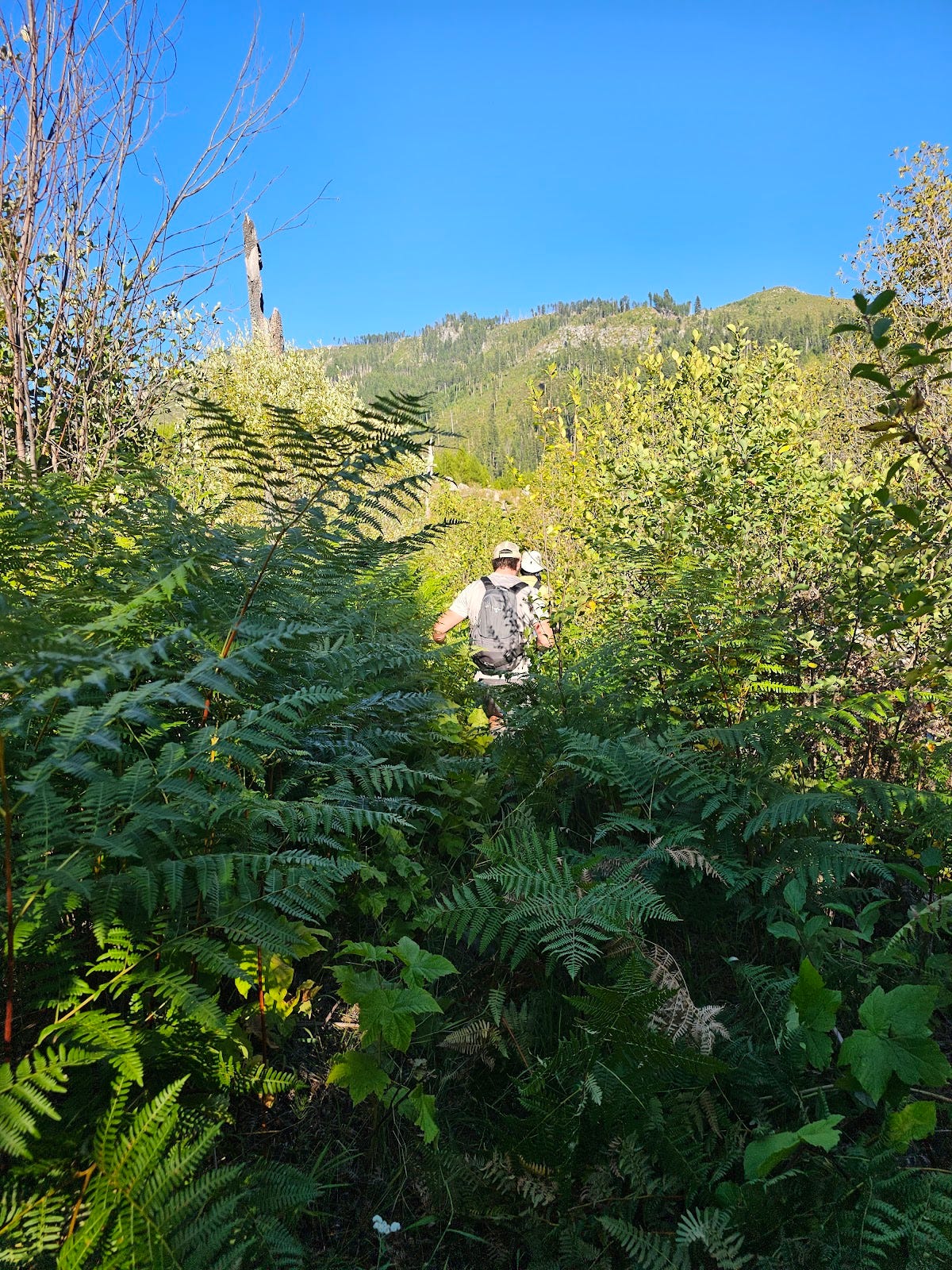


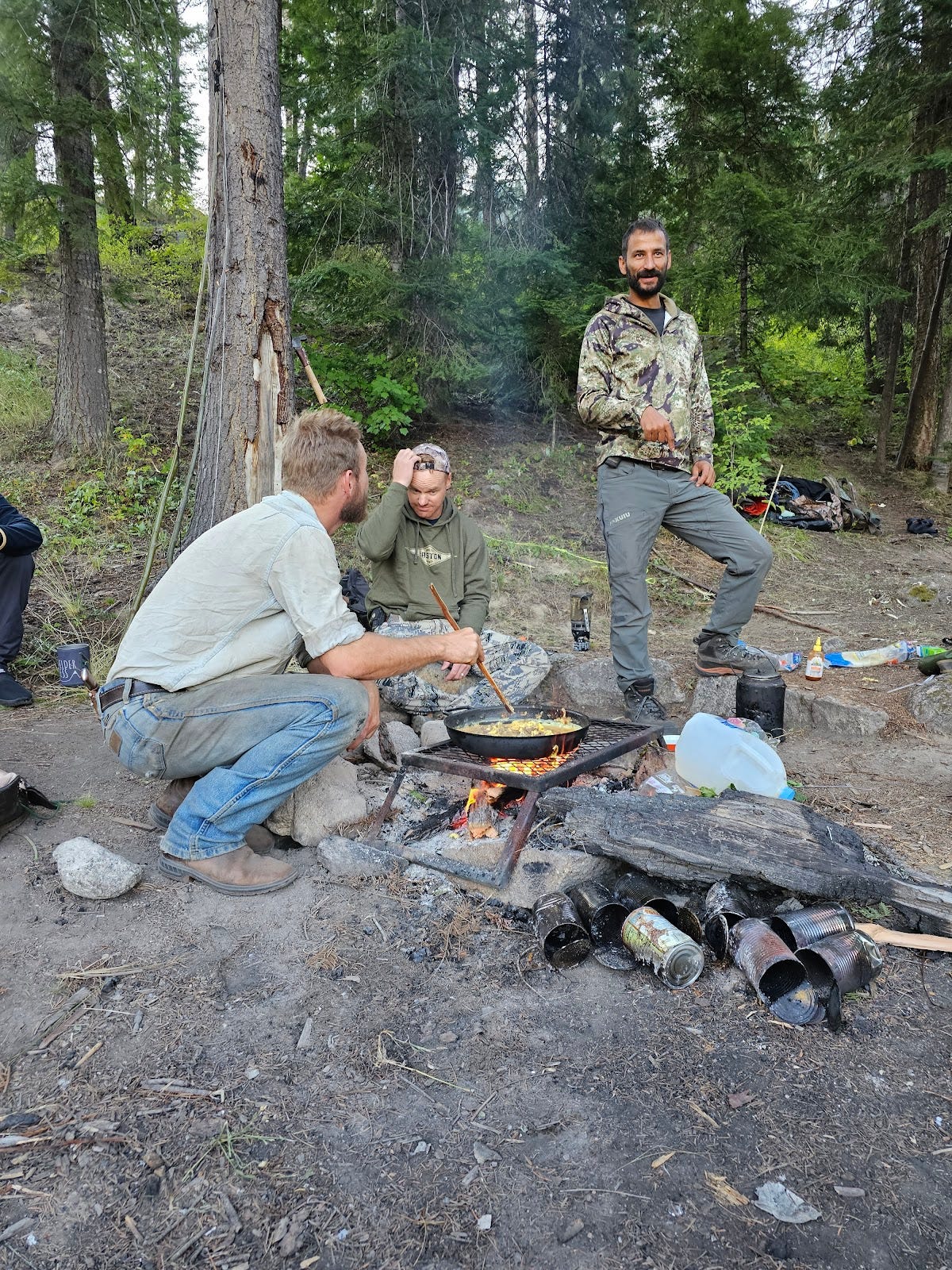
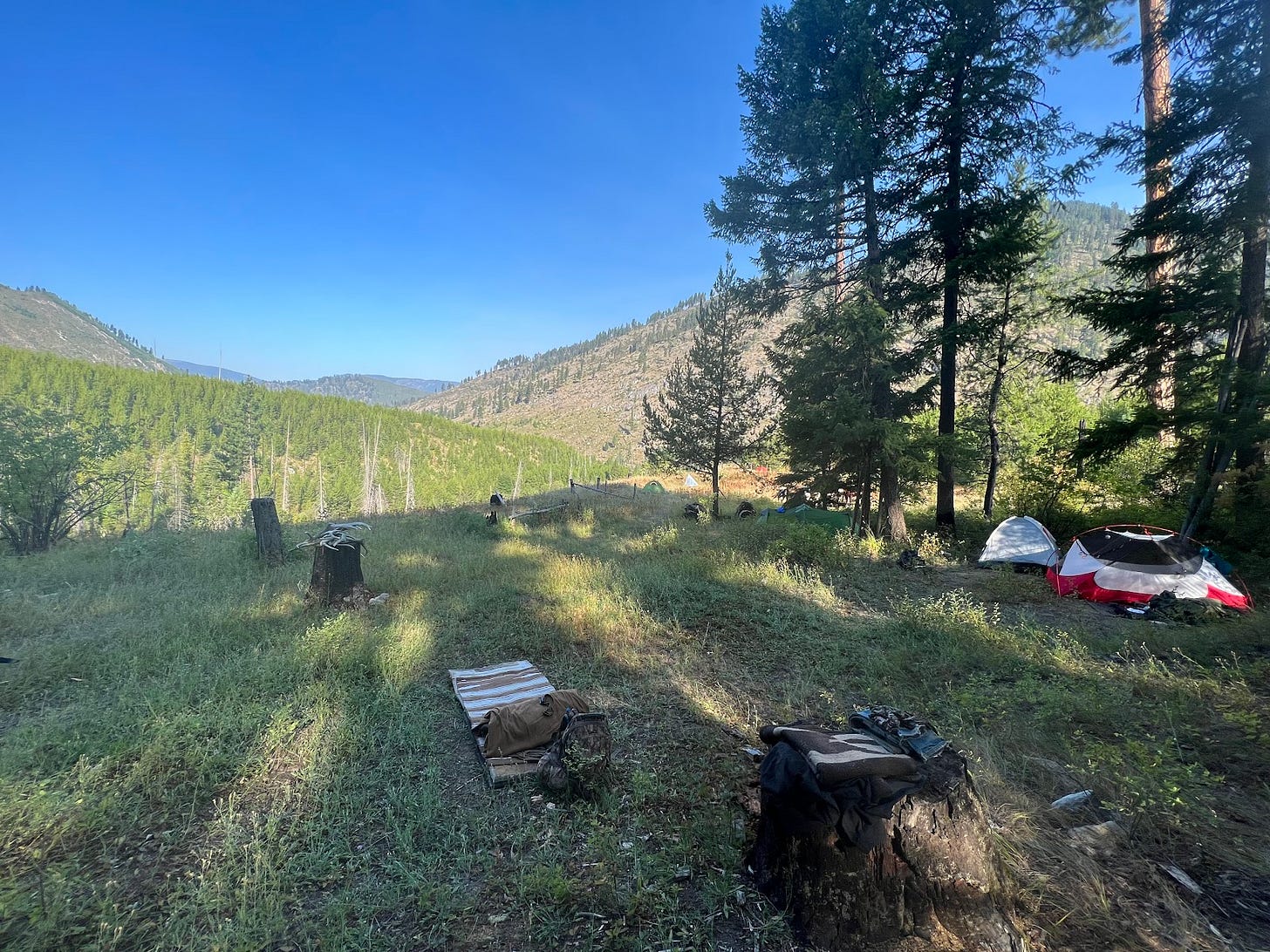


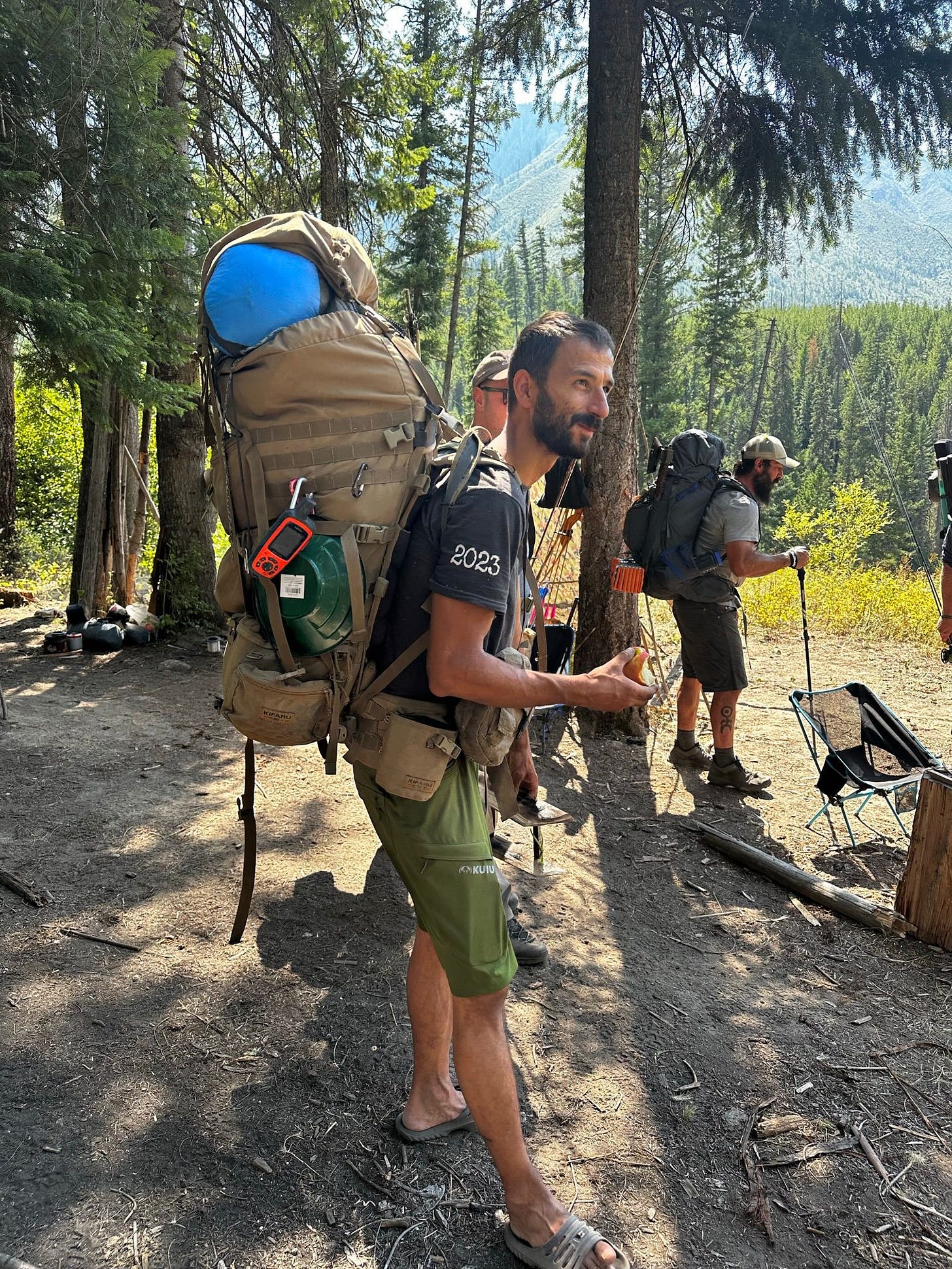
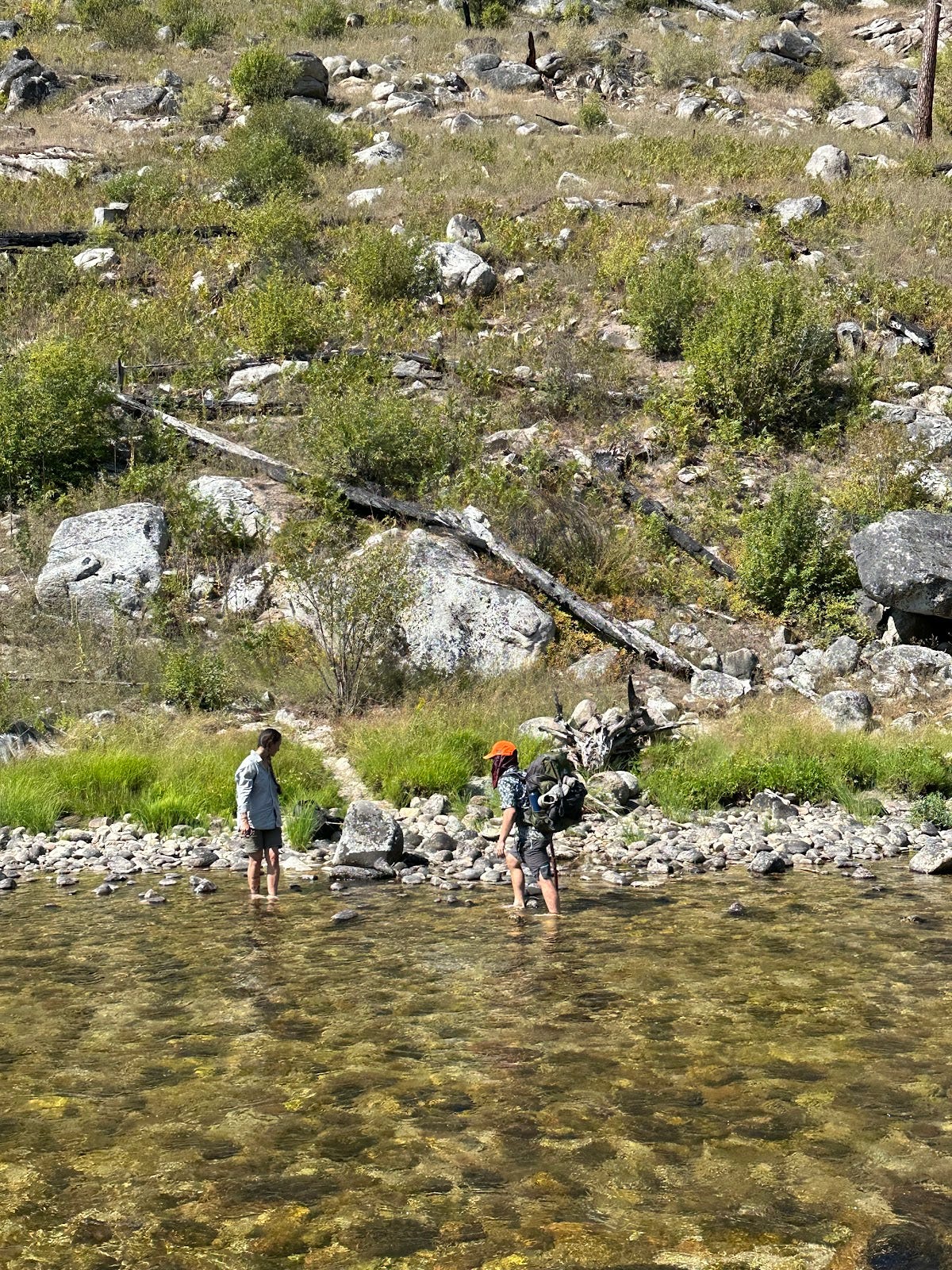
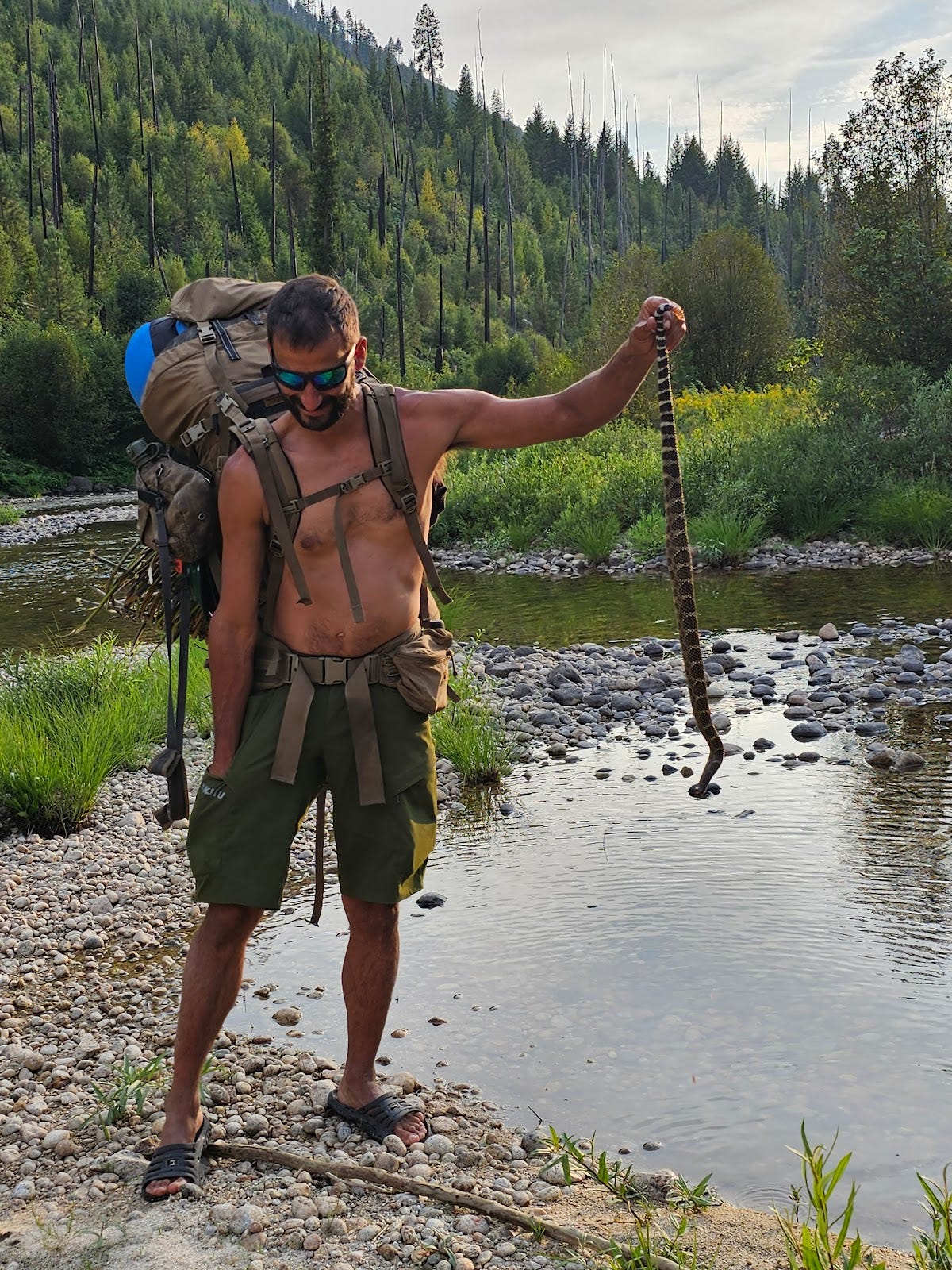
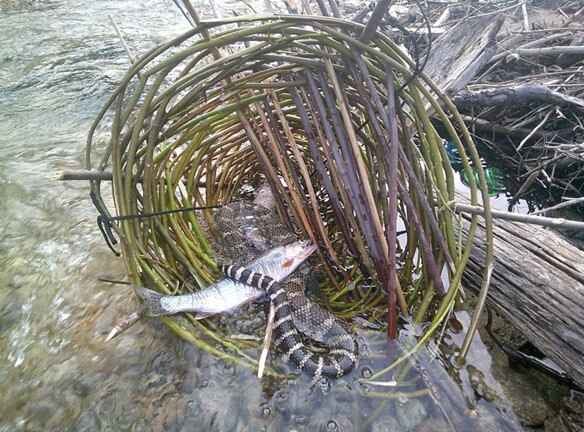
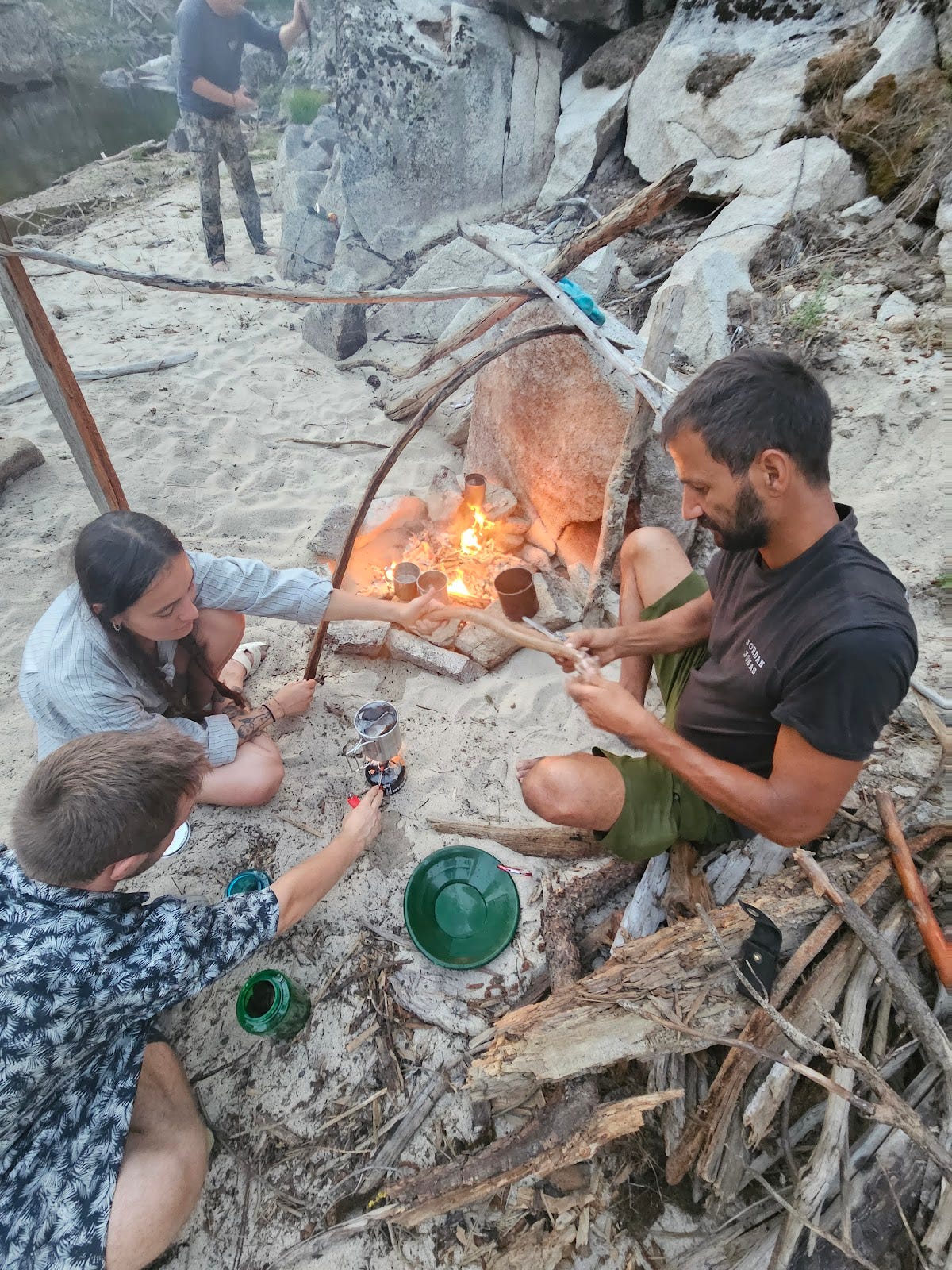
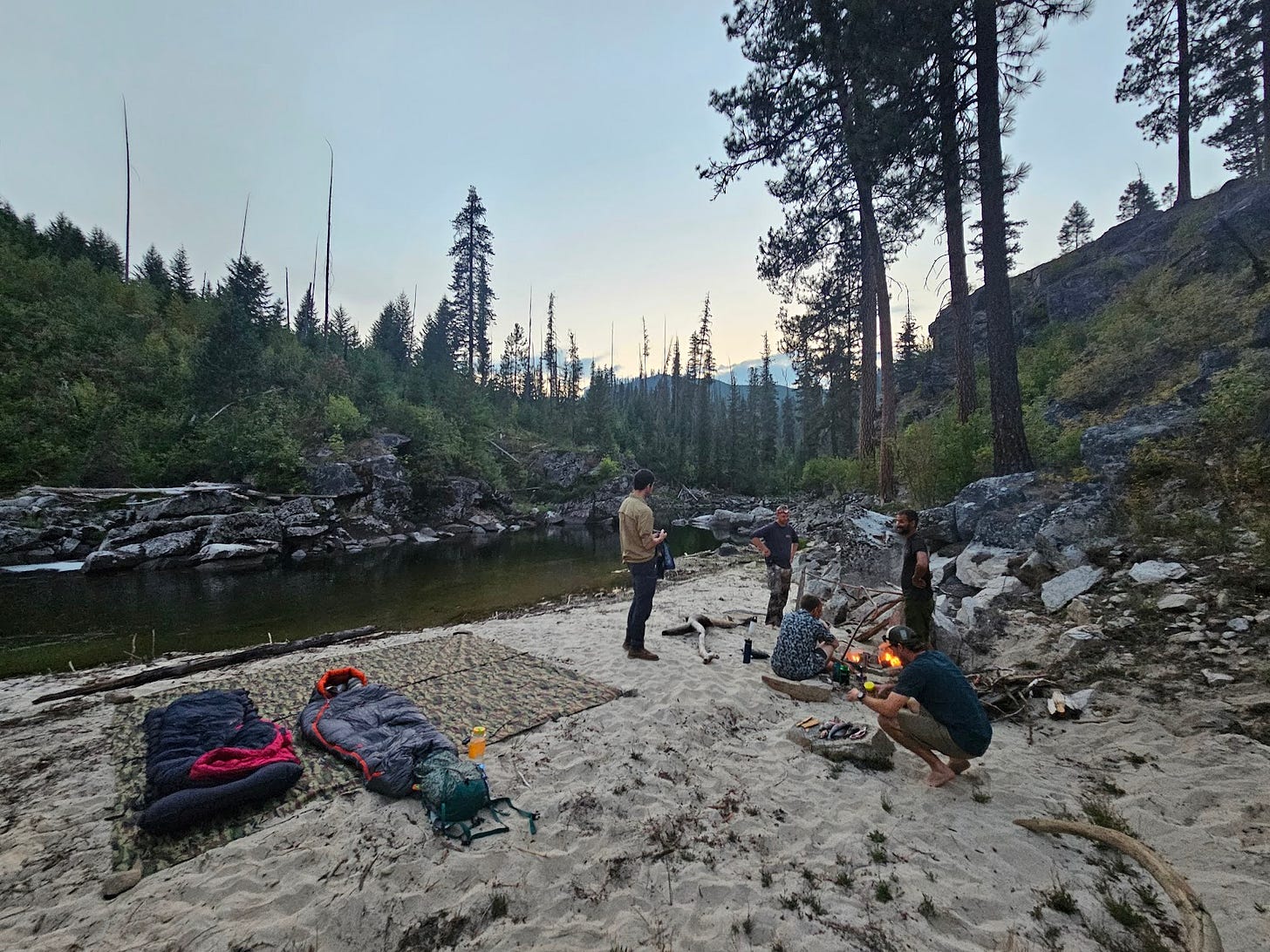

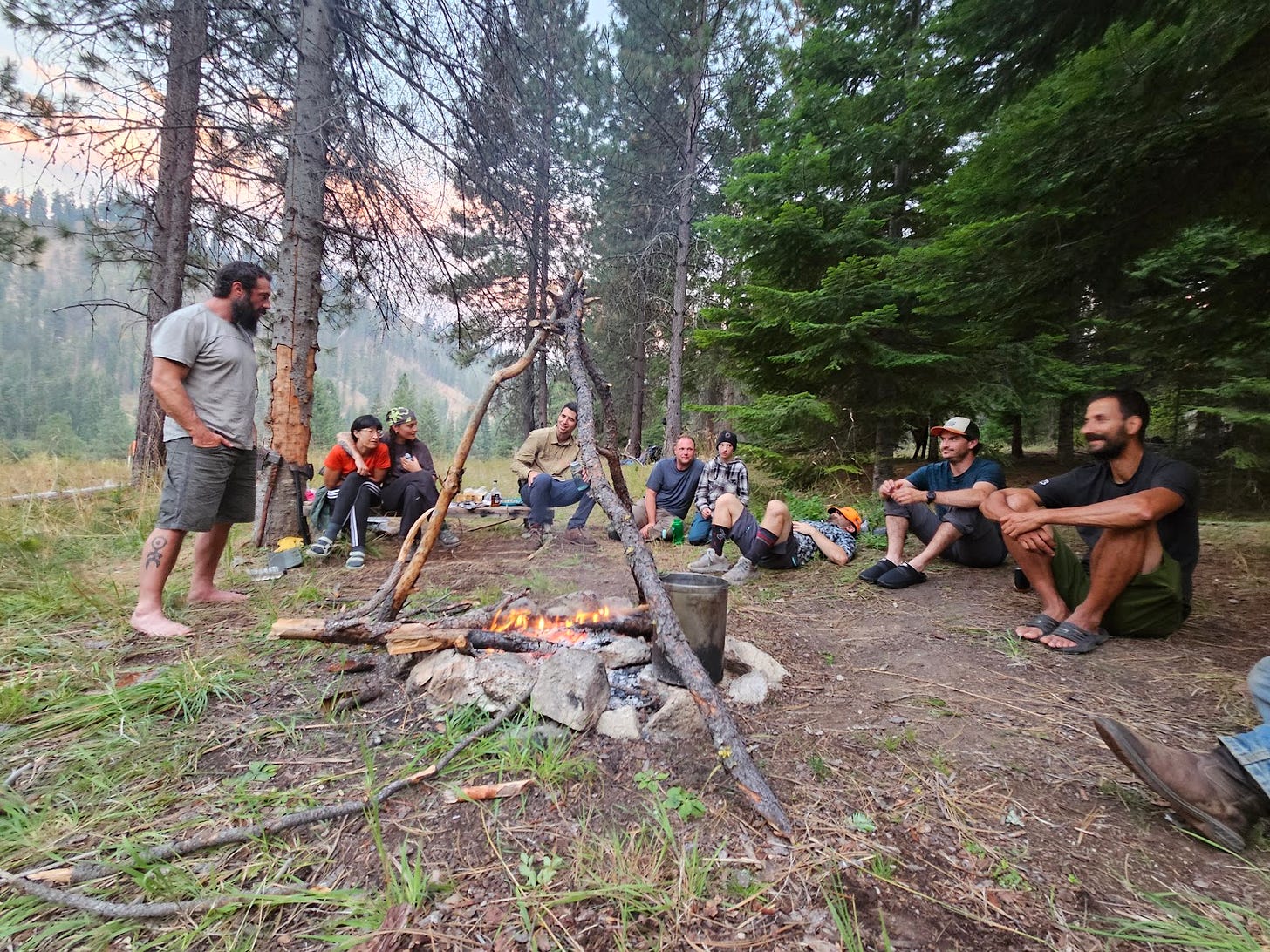
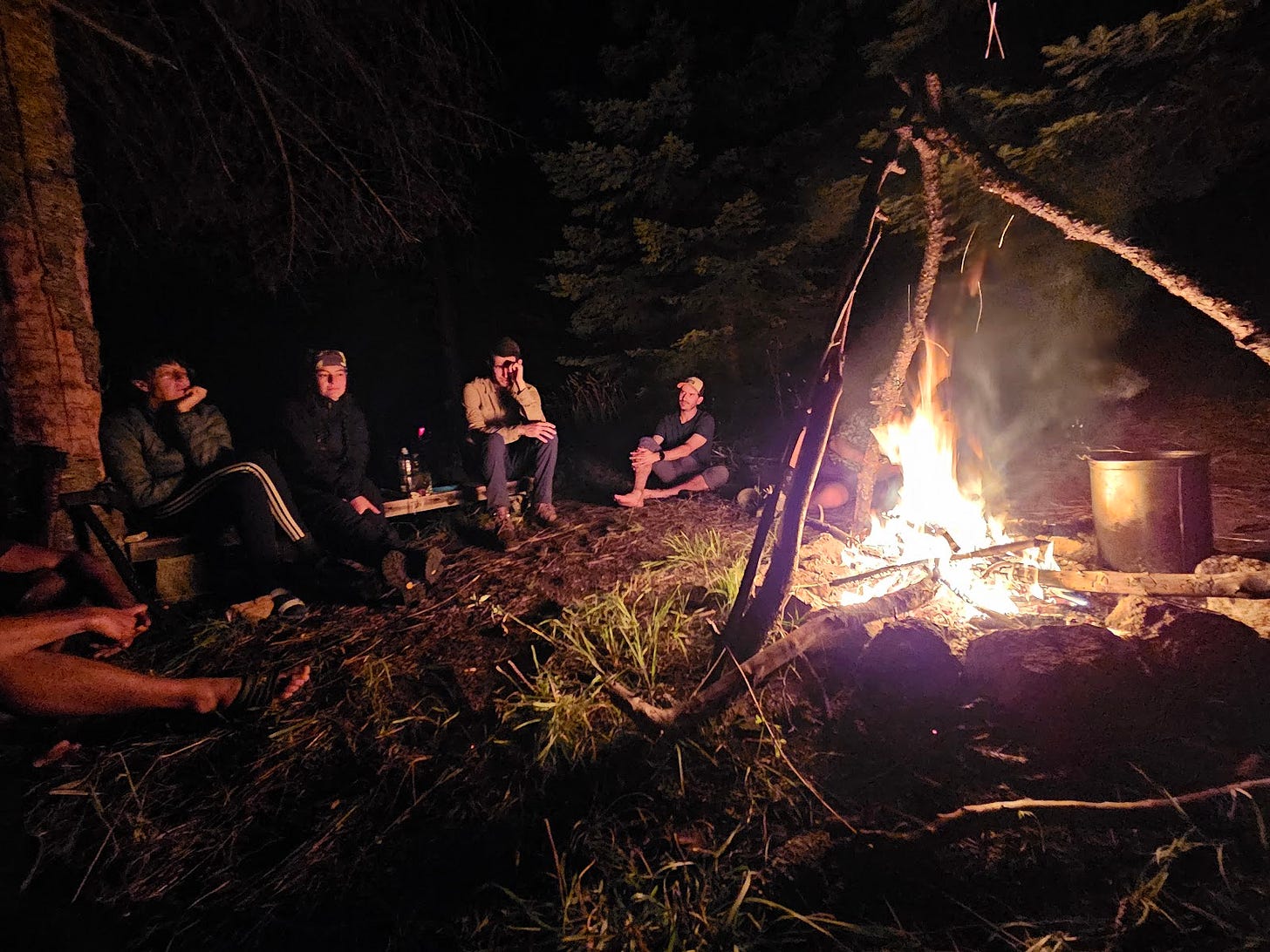





Dude, this was delightful. Couldn't stop reading. Sounds like an awesome adventure.
Also, I saw "Release the tiller" and smiled - love me some Jed